News

Cambridge researchers to receive nearly £4m to tackle cancer roadblocks
NIHR Cambridge BRC researchers are among the Cambridge scientists to receive £3,938,500 as part of Cancer Grand Challenges, a major initiative co-founded by Cancer Research UK and the National Cancer Institute in the Read more
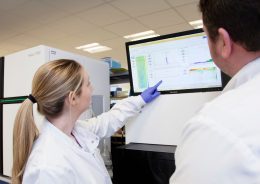
New genomic testing provides vital diagnosis for severely ill babies
More than a third of severely sick babies referred for rapid whole genome sequencing receive vital genetic diagnosis in latest study. Read more
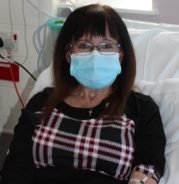
Celebrating International Clinical Trials Day
Patients, volunteers and research staff share why taking part in research is important and what it means to them.Read more

Cambridge researchers awarded Fellow status
Eight Cambridge researchers are elected as Fellows of the Academy of Medical Sciences.Read more

Cognitive impairment from severe COVID-19 equivalent to 20 years of ageing, research finds
Researchers suggest cognitive impairment as a result of severe COVID-19 is similar to that sustained between 50 and 70 years of age and is the equivalent to losing 10 IQ points.Read more

New cohort created to help further research in Paediatric Inflammatory Bowel Disease
Cambridge researchers studying Inflammatory Bowel Disease (IBD) in children will now have access to a panel of young volunteers with IBD, thanks to a new research cohort from the NIHR BioResource.Read more
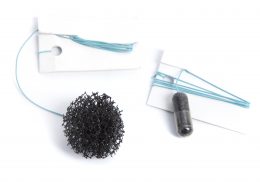
Funding boost for ‘sponge on a string’ trial
Millions of pounds in funding has been announced for a trial that could pave the way for a ‘sponge on a string’ test to be established as a routine screening programme to detect Barrett’s oesophagus – a condition that can lead to oesophageal cancer. Read more

Children with cancer benefit from whole genome sequencing
More than 100 children with cancer from across the East of England have had their tumours tested by whole genome sequencing to help improve their diagnosis and treatment.Read more

Largest study of whole genome sequencing data reveals new clues to causes of cancer
DNA analysis of thousands of tumours from NHS patients has found a ‘treasure trove’ of clues about the causes of cancer.Read more

Cambridge Clinical School successfully renews Silver Award for Athena Swan Charter
The University of Cambridge School Of Clinical Medicine which is part of the NIHR Cambridge BRC partnership, has been awarded the Athena Swan Charter Silver Award for another five years.Read more

Brain charts map the rapid growth and slow decline of the human brain over our lifetime
An international team of researchers has created a series of brain charts spanning our entire lifespan – from a 15 week old fetus to 100 year old adult – that show how our brains expand rapidly in early life and slowly shrink as we age.Read more
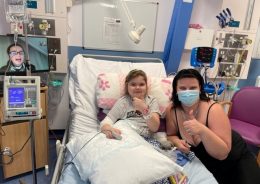
Cambridge recruits first patient to national inflammation study
Cambridge recruits first patient in a new national vasculitis trialRead more

From physiotherapist to researcher: a new and exciting research career for Peter
‘Dr Hartley will see you now’ is a phrase that still sounds unfamiliar to physiotherapist, Peter Hartley. For the last 10 years, Peter has been busy working both clinically and academically to achieve his doctorate. Read more

Study suggests lithium may decrease risk of developing dementia
Researchers have identified a link which suggests that lithium could decrease the risk of developing dementia, which affects nearly one million people in the UK. Read more
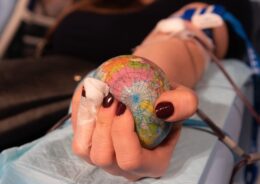
Personalised blood test can detect persistent lung cancer
Patients who are at a higher risk of their lung cancer returning can be identified by a personalised blood test that is performed after treatment, according to new research.Read more
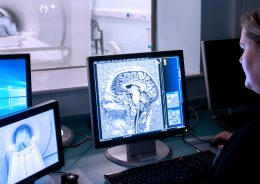
Exploring how inflammation affects cognitive performance in people with depression
Research has found that inflammation may influence cognitive problems for people with depression, highlighting a new target to improve treatment.Read more

Cambridge Professors receive NIHR Senior Investigator awards
Professor Emanuele Di Angelantonio and Professor Tamsin Ford have been newly-appointed as Senior Investigators for the NIHR. Read more
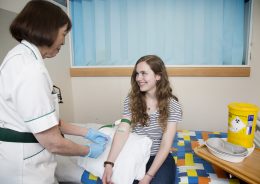
Cambridge CRF receives new funding boost for delivery of early stage clinical research
The NIHR Cambridge Clinical Research Facility (CRF) has been awarded new funding to support its research over the next 5 years.Read more

Cancer drug gives hope in treating heart attacks
Cambridge researchers have found a drug used to treat cancer could help with heart attack recovery.Read more

1,000 Covid patients sign up to UK drug trial
A study funded by the NIHR Cambridge BRC, has enrolled a thousand Covid patients to find new treatments for the long term consequences of the disease.Read more


